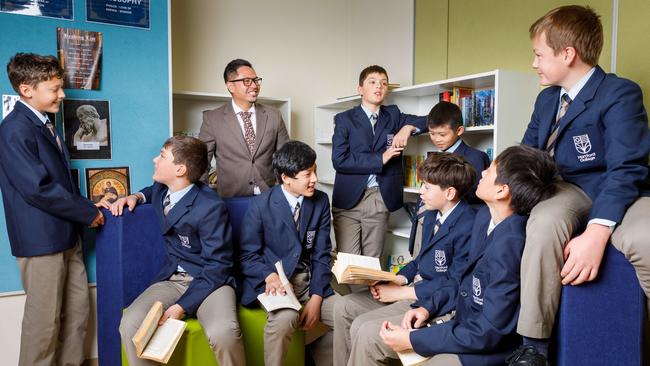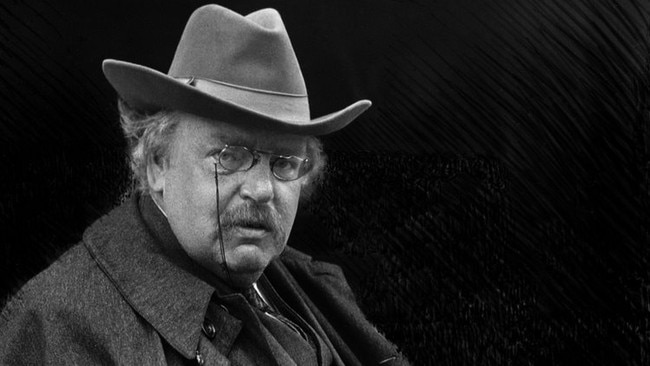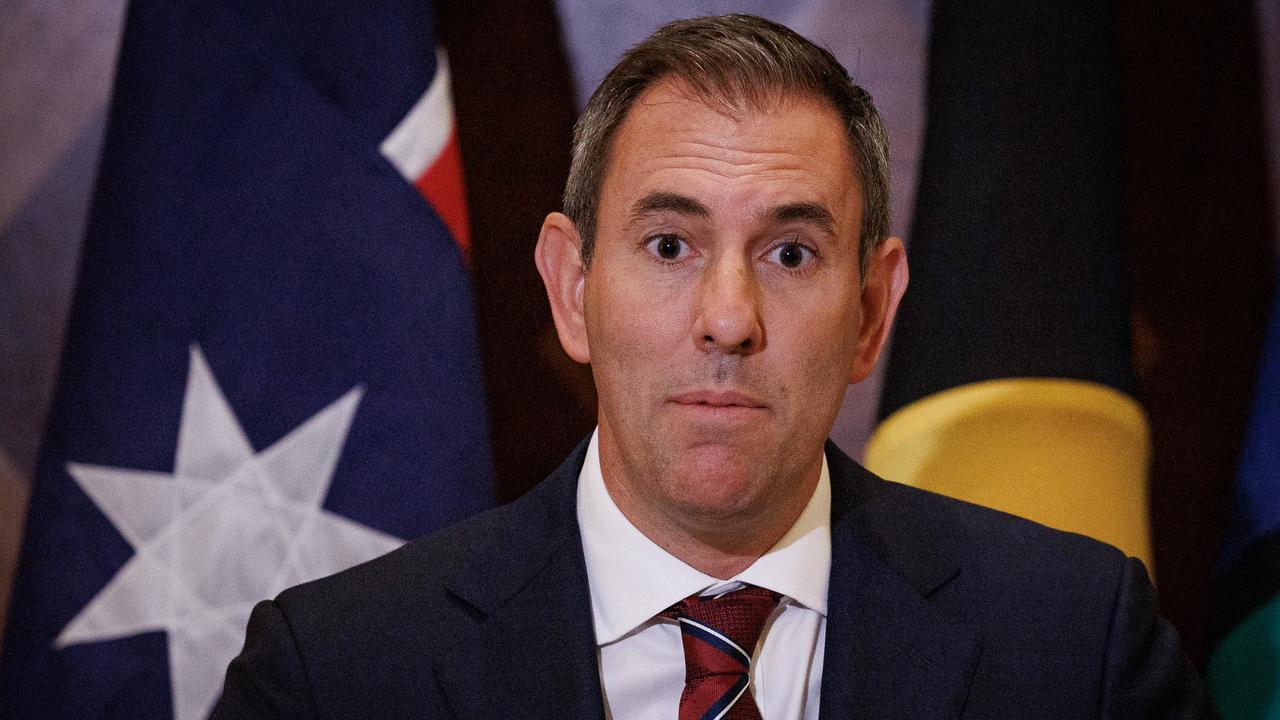What Australian education can learn from America’s Chesterton Schools

Australia seems to be suffering from the same malaise that has affected American education. We have a collective amnesia. We have forgotten who we are. We are too busy running after the latest ideas that we have forgotten the foundational ideas. We have, most of all, forgotten the parents who have entrusted their children to the schools to build their brains. Instead we have driven a wedge between parent and student.
We are obsessed with feelings instead of facts, and our brains are turning to self-absorbed mush. And we’re paying way too much money for the privilege of preventing our children from learning how to think.
But there is an unlikely hero riding to the rescue of education in America: the jolly English journalist G.K. Chesterton.
After going into eclipse for the two generations following his colourful life as a leading literary light, the author of the Father Brown stories has been enjoying a widespread revival. One of the surprising reasons is the network of classical secondary schools in the US and Canada known as the Chesterton Schools Network.
In 2008, I helped start the first Chesterton Academy far from London in the American Midwest. I was not an expert in education. I was simply a parent who needed to find a school where I could send my children. I wanted it to be faith-based, informed by a coherent philosophy, to have a rigorous integrated curriculum where what was taught in one class actually had some relevance to what was taught in another – and to be affordable. Simple. Isn’t that what every parent wants? So why was there nothing even close to that available?
Well, we decided to make it available.
I had only one other credential. I knew something about Chesterton. I had started a literary society devoted to him. I called him “The Apostle of Common Sense” and “The Complete Thinker.” Chesterton says, “Thinking means connecting things.” He was charitable and humble and welcoming. He knew how to argue. “The purpose of argument,” he says, “is differing in order to agree. The failure of argument is to agree to differ.” He was the kind of thinker we wanted our students to become.
Neither the founders nor the faculty had degrees in education. But they knew their subjects. Those included ancient history and ancient literature, Latin, the Bible, and philosophy (which includes logic). Of course we taught maths, but we started with Euclid. And while we gave all due attention to the sciences, we gave equal attention to the arts, so all the students not only learned how to dissect a rat and blow up a lab, but also how to draw and paint and sing and act.

Chesterton says the problem in our schools today is that students are exposed to educational philosophies that are younger than they are. Since we were faith-based rather than fad-based, we didn’t bother with the latest educational theories.
Another keen insight from Chesterton was inspiring to us: “The one thing that is never taught in any of our public schools is this: that there is a whole truth of things, and that in knowing it and speaking it we are happy.”
What a contrast from most schools today where one of the most salient features is widespread depression. Chesterton has nailed the reason for it – and the solution. We don’t teach the whole truth of things, and we don’t teach our students how to articulate it. The result is that students do not find meaning in life, and they don’t even have the tools with which to express their frustration. They think and talk in fragments.
People in other cities started finding out about our first school, and wanted to do the same thing. A second school started in 2014 in the north-eastern US. And then another in another part of the country. In the last ten years over sixty schools have started, mostly in the US, but some in Canada and other countries. There is interest now from all around the world, including in Australia where, as Greg Sheridan wrote recently in these pages, there is a growing movement of classical education schools.
There are now many successful models for Australian parents to follow if they are not satisfied with their current schooling options. In the case of Chesterton schools, they are all started locally and are independently funded and operated. But we all belong to this network, agreeing to teach the same curriculum, adhere to the same standards, use the same templates, follow the same faith and protect the integrity of the brand.
And when visitors walk into our school the first thing they notice is … laughter. There is great joy in our classrooms. In their first year, the students learn from Plato that there is a connection between virtue and happiness. They learn from Chesterton that the opposite of funny is not serious; the opposite of funny is not funny. You can be funny and serious at the same time.
Chesterton Academy graduates have discovered that unless they are pursuing professional careers such as law or medicine or engineering, they really do not have a pressing need to attend a university. They have achieved the equivalent of a university education in high school and can go directly into a trade if they so choose – minus the debt and the doubt and the disease that is often acquired in higher education.
In case you’re wondering if we achieved making our schools affordable, the answer is yes. How do we do it? The biggest savings come from keeping technology out of the classroom. We read books. Students are without their screens for eight hours a day. Thinking is refreshing. But it’s hard work. Chesterton says it might be the hardest work there is.
Dale Ahlquist is president of the Society for Gilbert Keith Chesterton and founder of the Chesterton Schools Network. He will be in Sydney speaking at Hartford College on November 1 and Campion College on November 2. His visit is supported by The Australian Chesterton Society.


